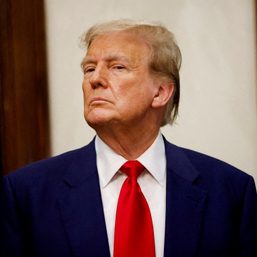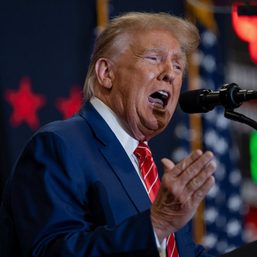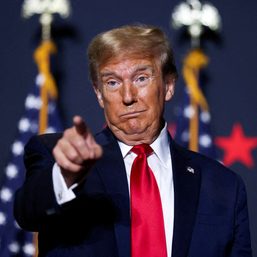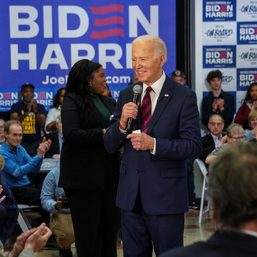SUMMARY
This is AI generated summarization, which may have errors. For context, always refer to the full article.

MANILA, Philippines – How does the United States elect the President?
Under the US Constitution, the election is neither a vote by Congress or a parliamentary system nor a direct popular vote like in the Philippines.
Here are some fast facts on how the world’s most powerful democracy elects its president:
System
- A compromise between election by a vote in Congress and by popular vote, the Electoral College consists of 538 electors, so a majority of 270 is enough to get elected.
- Each state’s allotment of electors equals the number of congressmen – according to population – plus two for each senator.
- Under the 23rd Amendment of the US Constitution, the District of Columbia has 3 electors and is treated like a state for purposes of the Electoral College.
- A candidate running for president has a designated group of electors in each state, generally chosen by the candidate’s political party.
- When citizens vote for president, they are not actually voting for the candidate himself but for the candidate’s electors in the state.
‘Winner-takes-all’
- Most states have a “winner-take-all” system that awards all electors to the winning presidential candidate, but Maine and Nebraska implement a different “proportional representation” system.
- After the election, the governor declares the winning candidate in each state and which electors will represent the state in the meeting of electors to be held on the first Monday after the second Wednesday in December.
- The electoral votes of the states are formally counted in a joint session of Congress on January 6th, after which the vice president – as senate president – officially declares who will be the next president and vice president.
How to fix a tie
- If there is a 269-vote tie between incumbent President Barack Obama and Gov Mitt Romney, the election goes to the House of Representatives, whose new members are due to assume office in January.
- According to the 12th Amendment of the US Constitution, each state delegation casts one vote so a majority of 26 will elect the president.
- Democrats are expected to be a majority of congressmen, but Republicans have more members per state, which means they will control more state delegations and therefore can get Romney elected.
Pros and cons
The Electoral College system is unique in the world and not everyone agrees it is the best, especially after the 2000 election which saw George W. Bush clinch the presidency thanks to a Supreme Court decision after Al Gore won the popular vote.
The following are its perceived advantages:
- It forces candidates to build a national coalition of voters on both big and small states, because each electoral vote countes
- Small states are crucial to breaking ties so candidates spend time there to push for their vote
- It is easier to count votes, especially in case of a tight election and in order to avoid litigation that will delay the results
- State rights — very important in the US — are upheld so they send their own electors to the federal government instead of it being chosen directly in a national, federal vote
The following are its perceived disadvantages:
- The system does not follow the democratic principle “One Man, One Vote” and at least in 3 cases the winner of the Electoral College lost the popular vote
- Electors get adjusted after each census, but population shifts change faster than that
- Those who vote for the losing candidate lose all their voice, except in Congress
- Candidates can write off states where they think they have no chance of winning, which would not happen if they could pick up chunks of states like congressional districts
- Third-party candidates are marginalized and the system encourages polarization – Rappler.com
Add a comment
How does this make you feel?




There are no comments yet. Add your comment to start the conversation.